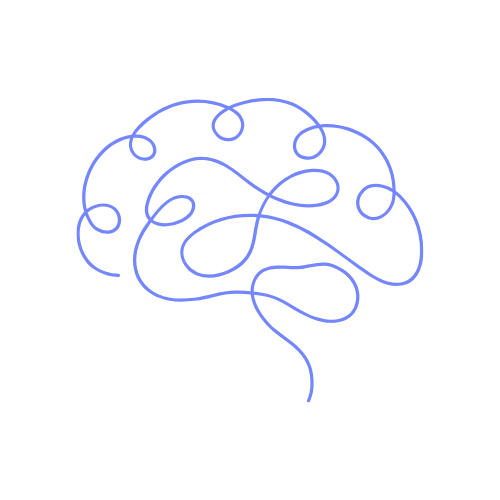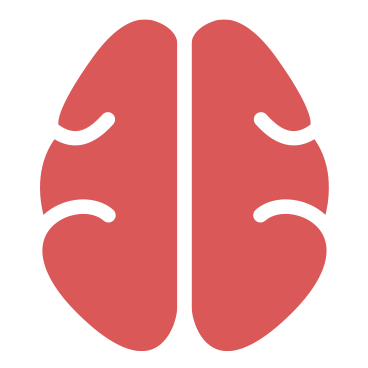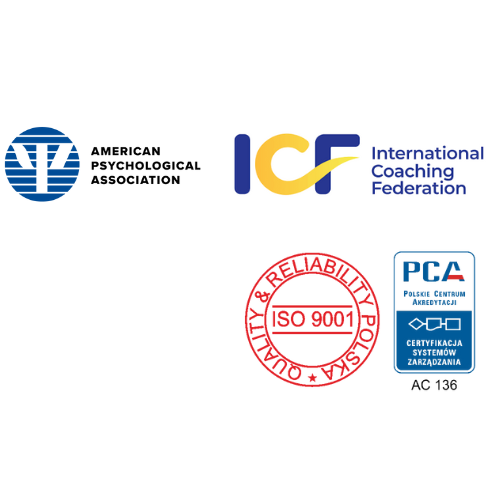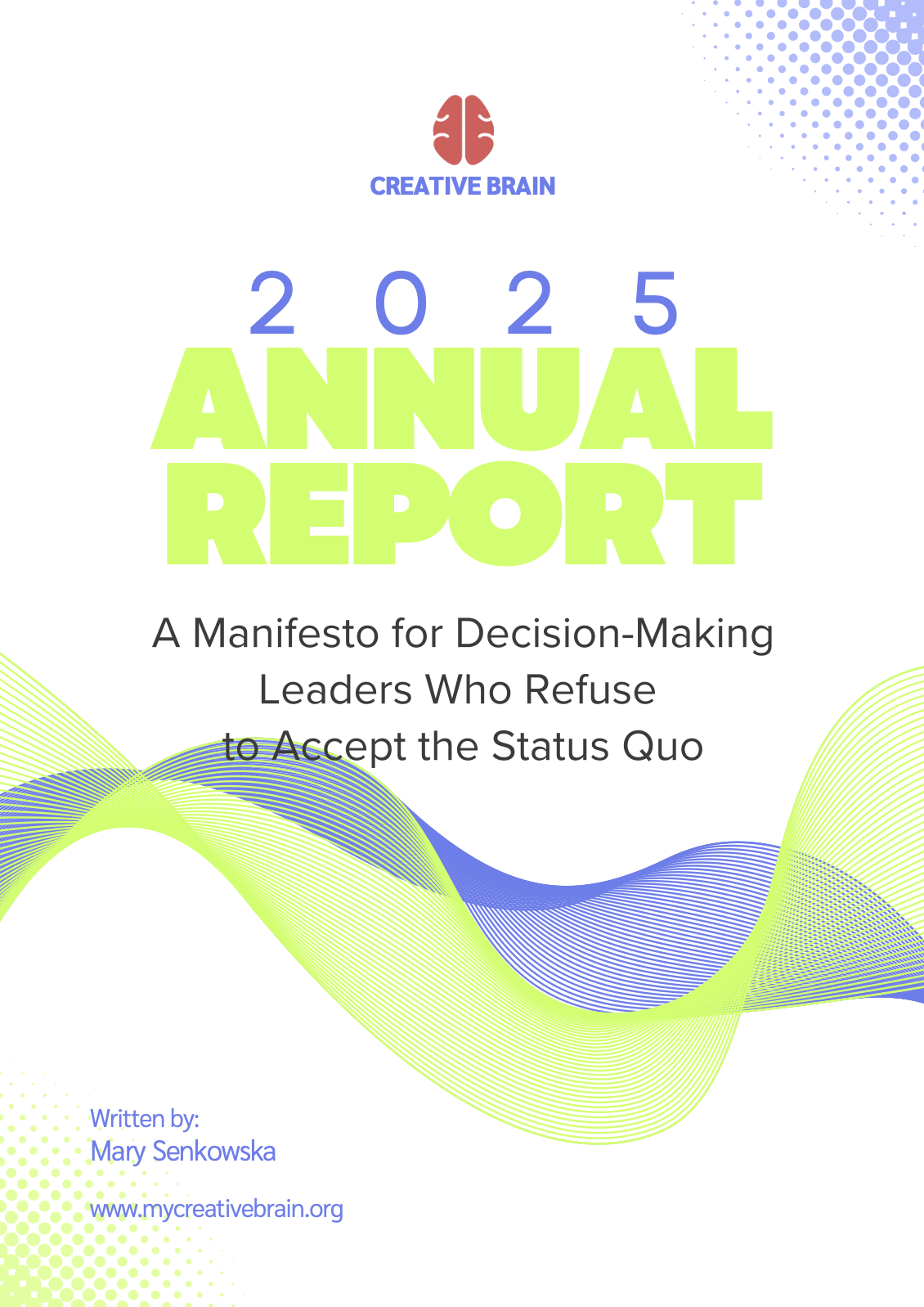I am Mary Senkowska, and this is why Creative Brain exists...
Our Mission & My Story
Methodology & Rationale
Our mission
Our mission is to empower 1 million professionals to drive positive contributions to global, national, and local economies by cultivating essential leadership foundations: deep self-awareness, robust mental health practices, adaptive resilience, and purpose-driven decision-making—shaping the Next Generation of leaders and guiding those who nurture them.
We work with individuals, teams and organizations to help build a healthy organism instead of a static structure because that's the only way an organization can withstand the amount of change and disruption we face.
Organizations are people and people are organizations, this is why people are who we focus on.
We work with individuals, teams and organizations to help build a healthy organism instead of a static structure because that's the only way an organization can withstand the amount of change and disruption we face.
Organizations are people and people are organizations, this is why people are who we focus on.
My story
COACHING/TRAINING HOURS
5000+
COUNTRIES
40+
NATIONALITIES
90+
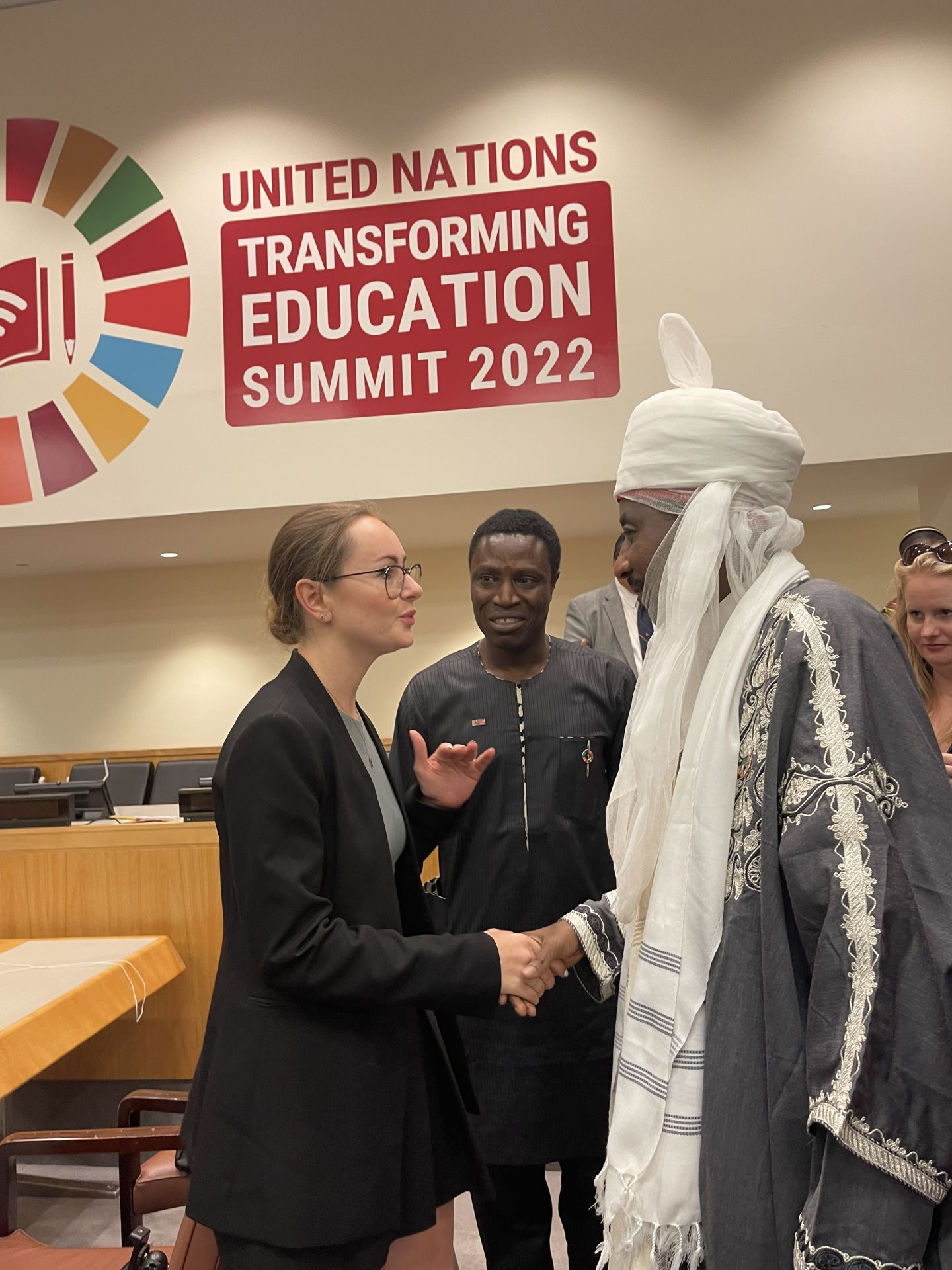
"The type of fulfillment and drive you get from seeing your work being a small part of changing economies is indescribable."
Mary Senkowska
CEO, Creative Brain
Pillars of our philosophy
1. Relationship with yourself is the longest one you’ll ever have so you need to sort it out first
2. Peace is a misunderstood concept, excellence in leadership is built internally and self-awareness and emotions are key parts of achieving peace
3. Everything is a choice, whether you want to admit it or not, and often admitting we’re choosing something is the hardest part because it makes you take responsibility for the agency you have over your life
4. Letting go of something or someone doesn’t determine the score (success/failure), intentionality and grieving should be ever-present skills in leadership, that's what drives impact and innovation
5. Living your purpose makes you unstoppable and it should be your scale for professional growth
6. You can only meet people as far as they are willing to go
7. We lack the vocabulary to recognize emotions correctly so we create incorrect responses
8. Leaning into your emotions with curiosity makes you stronger which may seem counterintuitive at first
9. How you live your life depends on how you organize your thoughts
10. Without a change of consciousness there’s no real reduction of stress
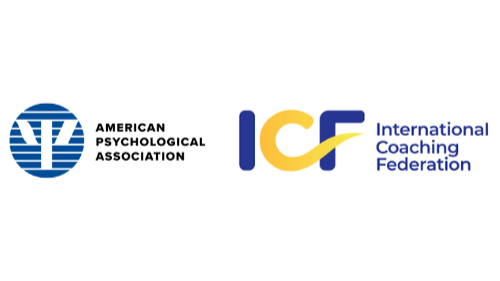
Words I live by
— Mary Senkowska
Methodology & Rationale
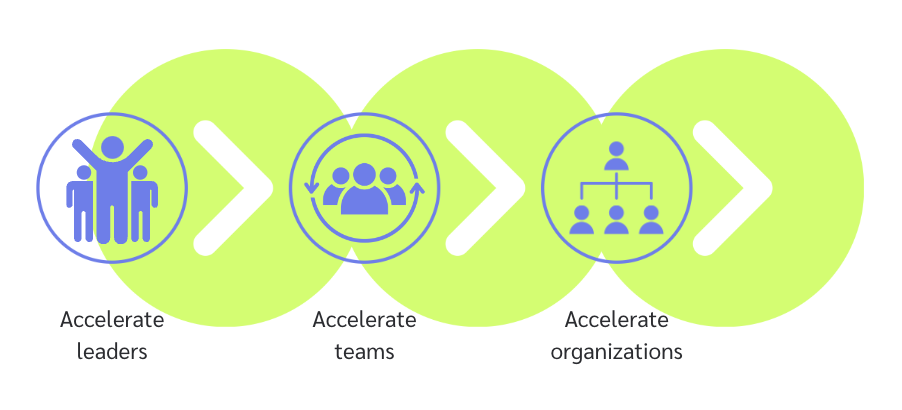
Create Ripples. | Drive Impact.
Being future-proof transcends into more and more conceptual framework, where the what decreases in meaning and the why slowly gains weight. Even the best product or service is temporary. World Economic Forum Jobs Report from 2023 estimates there will be a loss of 83 million jobs by 2027, creating another so-called new normal. The lost jobs, surely, will be replaced by new-normal-native jobs, many of which we don’t even have the technology for at this point.
And it’s not only the skills gaps that we should be anticipating. It’s the cognitive flexibility that will be required to swiftly adapt to the changing reality and the mindsets of younger, also new-normal-native, generations. Did you realize that the generation entering the workforce now, is the first one that does not know the world without the internet, social media, and streaming? All these inventions are altering how our brain operates. From changes observed in the reward mechanisms to the nature of learning soft skills, we must be aware that the steps we took to get where we are may be far from what they need to progress.
Success, now, more than ever, became a system to improve and not a line to cross; pushing intentionality and adaptability to the forefront of leadership-excellence skillset.
Success, now, more than ever, became a system to improve and not a line to cross; pushing intentionality and adaptability to the forefront of leadership-excellence skillset.
